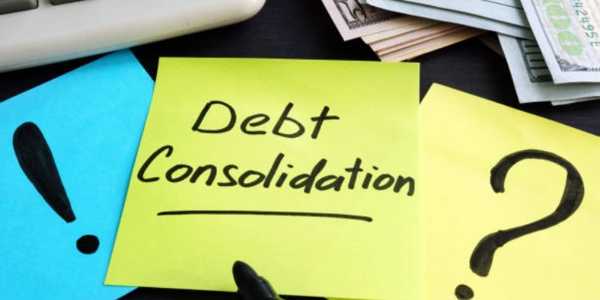Travel
How To Get a Loan With No Credit History
Let’s be real. Life hits hard sometimes. Bills pile up. School fees are knocking. A business idea needs money to grow. But when the bank checks your credit file and sees nothing, they shake their heads. No credit history? They’re not touching that. Still, money moves with or without records. So, it's time to learn how to make money, even if your name doesn't ring any credit bells.
Let’s be real. Life hits hard sometimes. Bills pile up. School fees are knocking. A business idea needs money to grow. But when the bank checks your credit file and sees nothing, they shake their heads. No credit history? They’re not touching that. Still, money moves with or without records. So, it's time to learn how to make money, even if your name doesn't ring any credit bells.
What “No Credit History” Means
When someone has no credit history, it means there's no record of how they've borrowed or paid back money. No credit card use. No loans. No past debts. Nothing. It's just a blank sheet.

Banks and lenders don’t like that blank sheet. It tells them nothing about risk. So they assume the worst.
But that doesn’t mean you can’t get a loan. It just means the path is different.
Start With Lenders That Accept Thin or No Credit
Traditional banks are not always your best bet. They move with old rules. They want numbers, records, files. But there are new players in the loan game. Some lenders now focus on more than credit scores.
They may check your income, employment status, education, or even bank activity. These are called alternative data lenders. They look at who you are right now, not what your record says — because you don’t have one.
Look for lenders that are open to first-time borrowers. These are usually fintech platforms, online lenders, credit unions, or community-based loan services. Some of them were built for people just like you — those who have not had a chance to borrow before.
Use a Co-Signer Who Has Strong Credit
If a blank record is your wall, a co-signer is your ladder.
A co-signer is someone who agrees to repay the loan if you are unable to do so. It could be a parent, a sibling, or a friend. But not just any friend — someone with good credit.
Their credit history speaks for you when yours cannot.
If you get this kind of help, don’t waste it. One missed payment will damage both your name and theirs. So respect that trust.
Try Secured Loans to Build Trust
Lenders fear risk. That’s why they ask for credit. But what if you gave them something else?
That’s where secured loans come in.
A secured loan means you give the lender something — like savings, a car title, or an item of value — in case you don’t pay back. It’s like saying, “If I fail, take this.”
Secured loans are easier to get when there's no credit history. And if you repay them correctly, they help build your credit for the future.
It’s slow, but it works.

Apply for a Credit-Builder Loan
This is not the kind of loan where you collect cash on the spot. It works backwards.
With a credit-builder loan, the lender holds the money in a locked account. You make monthly payments toward it, just like a regular loan. In the end, you get the money — and a new credit history.
It’s like paying your way into the credit world.
These loans are small. $300 to $1000. But their value isn't in size. It's in the credit report they leave behind.
Show Proof of Income and Stability
No credit? Then bring your income.
Many lenders will open their doors if you can show that money comes in regularly and responsibly. That includes salaries, freelance income, gig work, or even a steady business.
Lenders also want to see stability. That means:
How long you’ve had your job
How long you've lived in the same place
How steady your bank balance looks
Even if there’s no credit history, stability speaks. Show it with pay stubs, bank statements, rent history, or anything that proves you're not just here today and gone tomorrow.
Avoid Payday Loans and Loan Sharks
Desperation can make people foolish.
Just because someone is willing to lend you money without credit checks doesn’t mean you should take it. Watch out for payday lenders. They promise quick cash but tie you down with high interest rates, strict deadlines, and no mercy.
Before long, a $200 loan can turn into $ 2,000 in debt. Then what? You start dodging calls, ducking out on bills, and losing sleep.
Loan sharks do worse. They don’t just damage your bank account — they damage lives.
So don't touch loans that feel like traps. If the terms are unclear, if the interest rate sounds too high, or if the lender seems too eager, walk away. Run, if needed.
Use Buy Now, Pay Later (BNPL) the Right Way
Many platforms now allow people to split payments into smaller parts with no interest, even without requiring a credit check.
If used wisely, Buy Now, Pay Later options can help establish a strong repayment record and earn trust from financial platforms. But don't abuse them.
Use them for small, planned expenses — not wild shopping. Pay them off on time. They may not build formal credit scores, but they train you to manage debt.
And some platforms may report your payment behaviour to credit bureaus — which helps your case for future loans.

Start Small and Grow From There
Even if a lender gives you a chance, don't try to collect big money from the start. Go for a small loan—something you can pay off quickly and without pressure.
Pay it fully and on time. Please do it again.
This kind of behaviour writes your credit story — word by word. And when the day comes when you need a bigger loan, lenders will read that story and trust you more.
Build a Credit File As You Go
Getting a loan with no credit history is not just about solving today’s problem. It’s about setting up your future.
Once you receive your first loan, credit card, or rent payment that gets reported, ensure it is accurately counted.
Use automatic payments. Don’t borrow more than you need. Never pay late — not even by a day.
Your actions today shape the credit file that opens doors tomorrow. So guard it. Build it. Use it with discipline.
Growing Without a Credit Score Is Hard — But Not Impossible
A blank credit file is a closed door. But closed doors open with the right knock.
You don’t need a fancy background, long financial history, or big family names to get started. You need wisdom, patience, and a plan.
Lenders want to know one thing: Can this person be trusted with money?
Show them. Not with noise. Not with talk. With actions.
Keep your promises. Pay your debts. Move smart.
And when you finally earn that credit record, let it reflect the lessons learned while walking the hard path.
Trending








